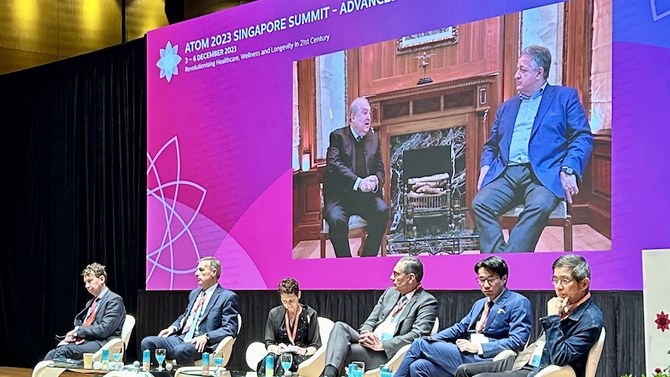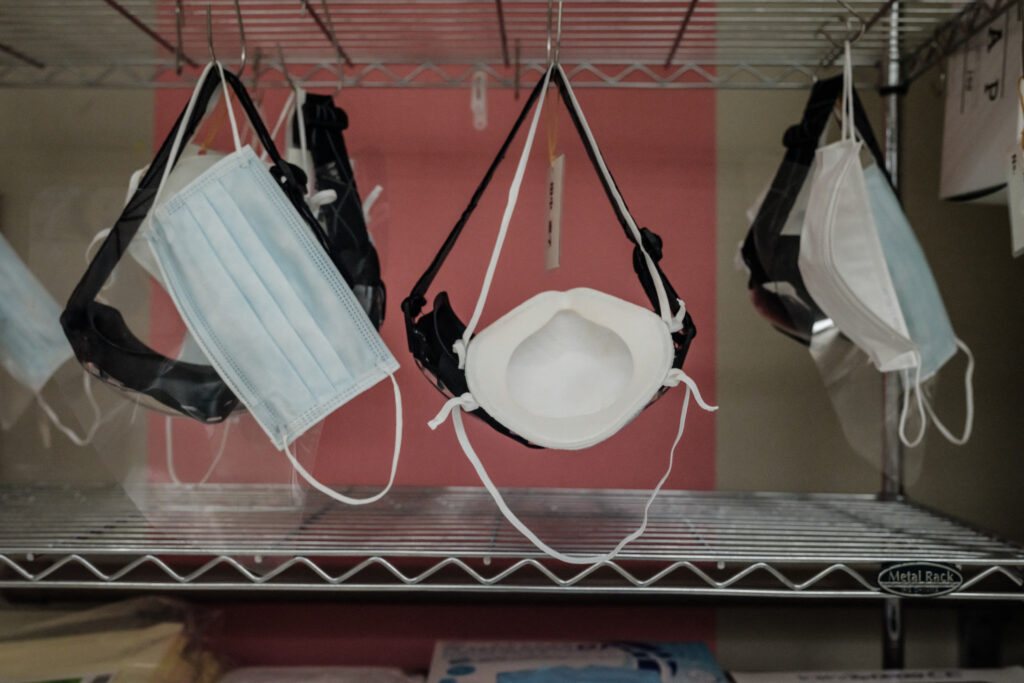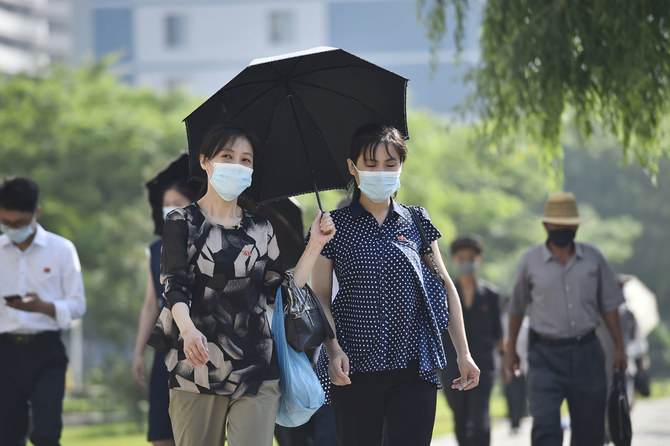SINGAPORE: The world is not prepared to face another pandemic, the co-founder and chairman of Moderna said, as insufficient attention was being paid globally to health system resilience.
Dr. Noubar Afeyan, a biochemical engineer who co-founded the US-based drugmaker in 2010, was speaking at the Advanced Tomorrow 2023 Summit held in Singapore on Dec. 3 to 6.
Organized and co-hosted by the Advanced Tomorrow, or ATOM, initiative and Yong Loo Lin School of Medicine of the National University of Singapore, the meeting of global political, business, and academic leaders focused on the future of healthcare amid geopolitical changes and technological advancements.
During a discussion on the ability of health systems to prepare for shocks and global disruptions such as the global outbreak of coronavirus in 2020, Afeyan, whose company’s COVID-19 vaccine became the second one to get cleared for use in the US, said the quick release of jabs may have given “the wrong impression” of resilience.
“We got lucky, because it so happened that this virus was amenable to an intervention that the company that I co-founded, Moderna, had developed a technology for,” he said.
A similar technology was developed by Pfizer, whose vaccine against COVID-19 was the first to receive a green light from the US Food and Drug Administration. But the fact that what both companies worked on at the time ended up being useful in addressing the coronavirus outbreak was accidental and will not help if the next health crisis is caused by a completely different pathogen.
“There will be other threats, for example, antibiotic-resistant bacteria, that this technology is not going to work for,” Afeyan added. “We have no good solutions for that right now. So, if there’s a major bacterial outbreak through the food system, through any other means, we’d be really gambling that we can come up with something quickly.”
The problem with preparedness was in both attention and funding worldwide being directed not toward long-term health security but to short-term solutions.
“I don’t think there’s a lot of attention paid to resilience because resilience always gathers momentum after there’s been a failure,” Afeyan said. “As soon as the failure is forgotten, resilience goes out of the window.”
Dr. Armen Sarkissian, former president of Armenia and theoretical physicist who chairs ATOM, said on the sidelines of the Singapore conference that current approaches were like betting on an uncertain outcome, with success depending only on luck.
“We are at a crossroads of a huge number of problems. One problem, for example, is the resistance to antibiotics … We were lucky that 100 years ago, by accident again, (Scottish physician and microbiologist) Mr. (Alexander) Fleming found penicillin, but we have overused penicillin and related drugs,” Sarkissian told Arab News.
He noted that it was necessary to pay more attention to health security and realize that in the 21st century the ongoing climate crisis and the related problems of food security and water scarcity were not the only ones, with a possible health crisis likely to be even bigger than the former.
“We on this planet need definitely, first of all, a holistic approach to our health. Secondly, raising awareness, money, and support to health-related research — biological, biophysical sciences, and so on — and to accelerate the process to find solutions to many possible problems that we are going to face,” he said.
“It’s time that we look inside ourselves, care about ourselves alongside the planet. So, I will put together, with climate care, healthcare, climate security with health security. And the international community has to come together, under the United Nations, in the form of a COP (the Conference of the Parties, which is the annual Climate Change Conference), and we’ll see what we can do together.”






















